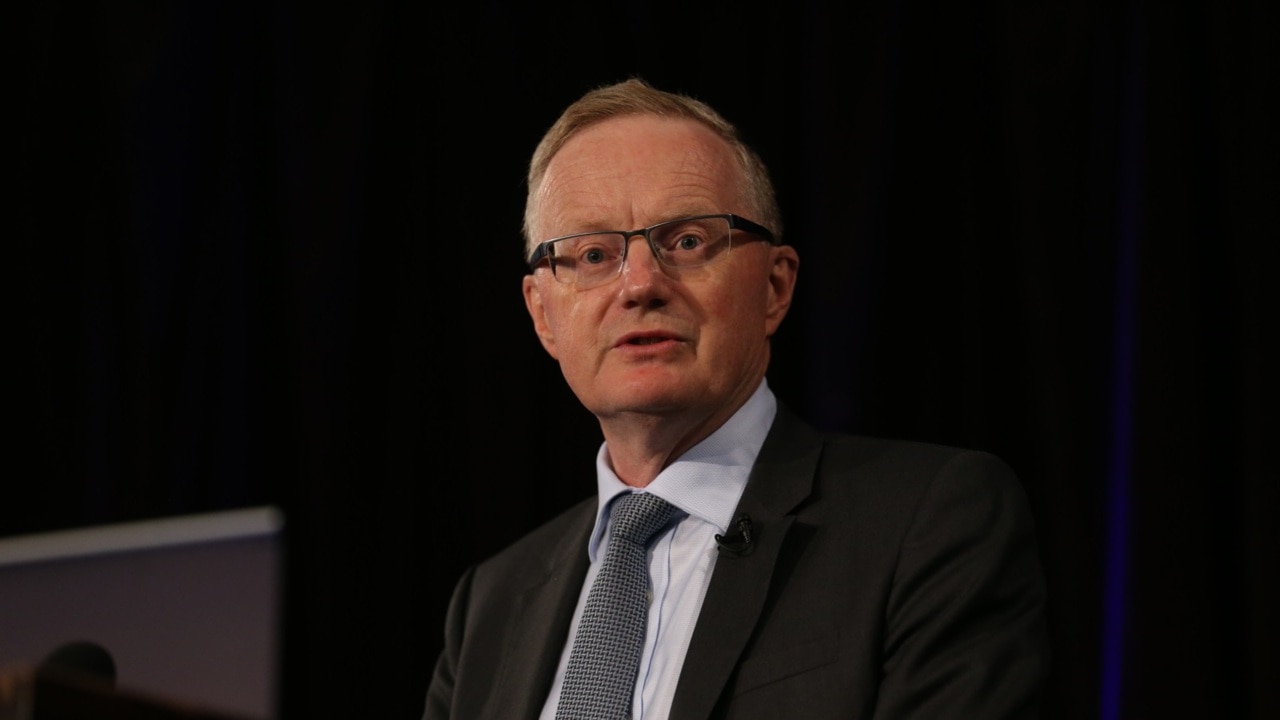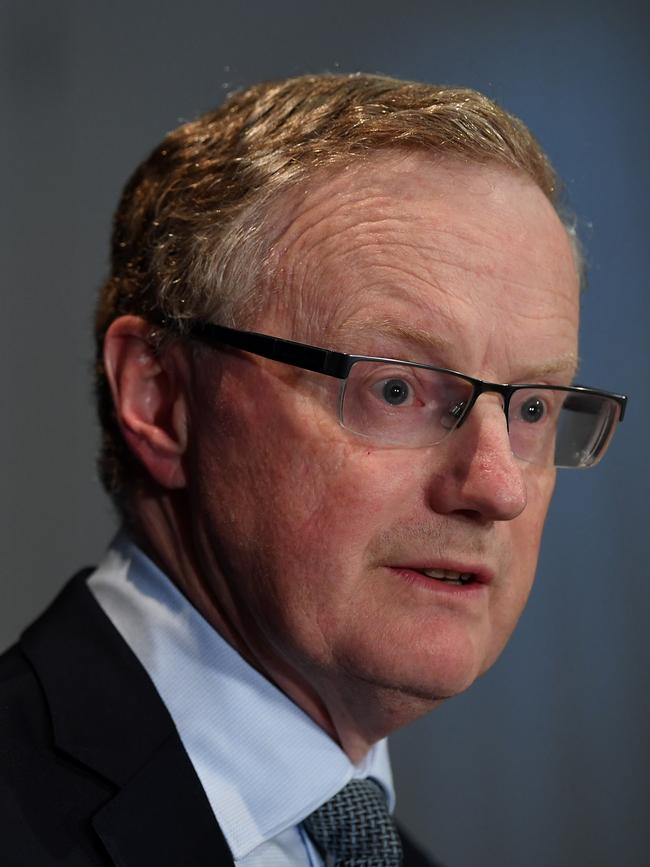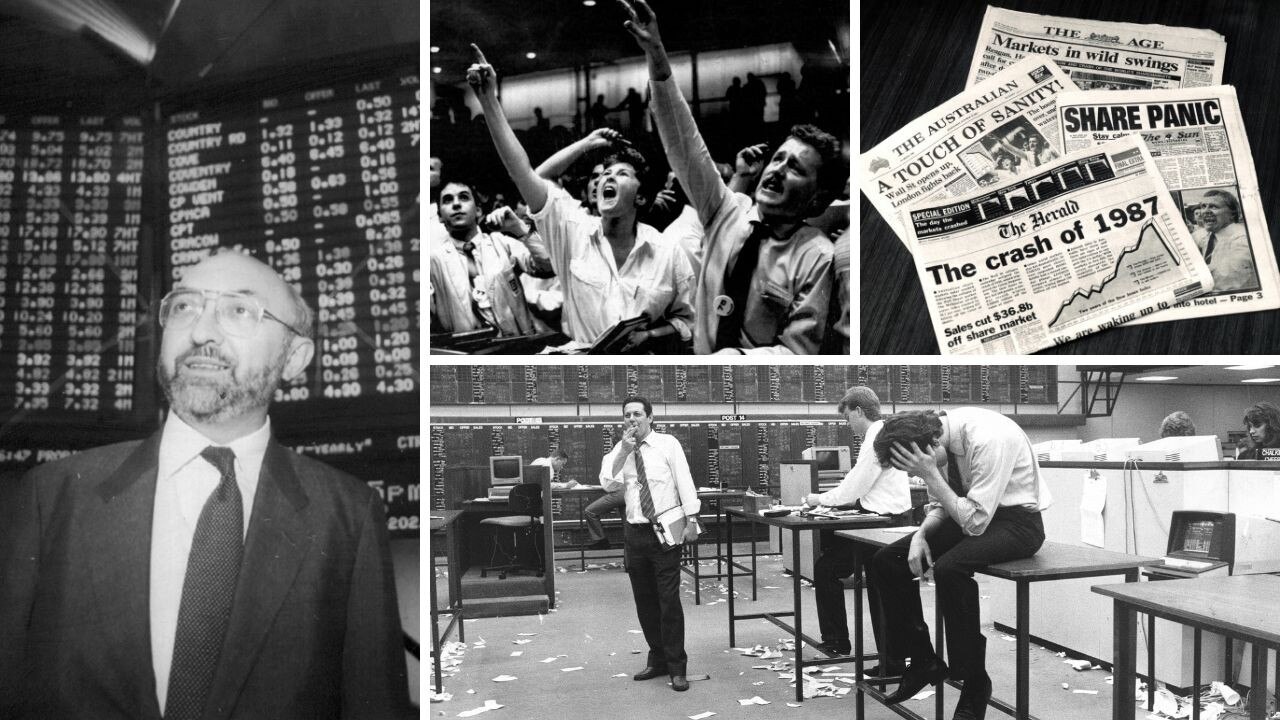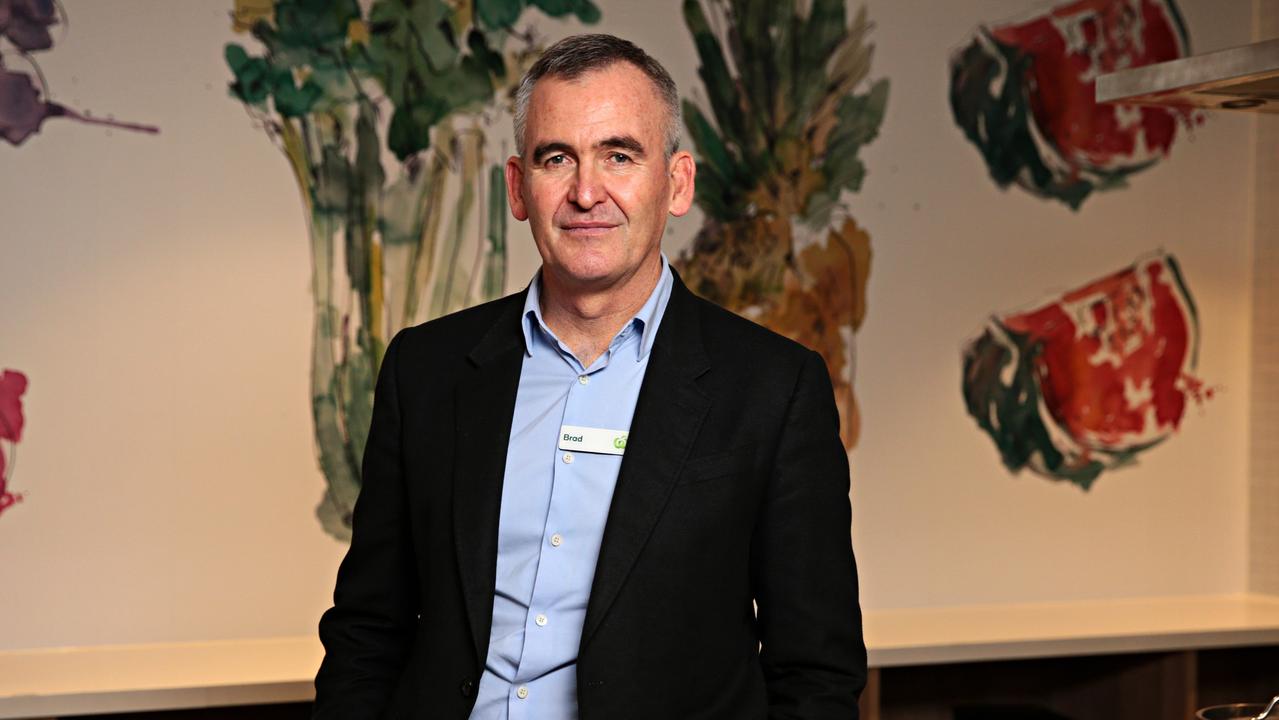Terry McCrann: RBA buries free money cargo cult
RBA governor Philip Lowe is providing a foundation of stability in this time of plague, volatility and monumental, confusing and continually changing uncertainty, writes Terry McCrann.

Terry McCrann
Don't miss out on the headlines from Terry McCrann. Followed categories will be added to My News.
Thank you governor for driving a stake right through the heart of the silliest — but extremely dangerous – 21st century version of ‘Cargo Cultism’: that the government can just shower all of us with ‘free stuff’.
Reserve Bank governor Philip Lowe did a series of – actually, very – important things in debunking so-called Modern Monetary Theory or MMT, specifically saying it is not for us.
This, simply expressed, is that governments can run massive budget deficits – spending much more than they raise in tax revenues – and that the RBA can simply print and give the government the billions of dollars difference. Instead of the government having to issue and sell bonds to private sector investors to raise that money.
Or as Lowe explained, “a variant on this idea is that the central bank (in Australia, the RBA) should just deposit money in every bank account in the country” – so-called “helicopter money”.
He made his opinion unambiguously clear by describing it as “seen as holding out the offer of a free lunch of sorts”; and then added “the reality, though, is there is no free lunch. The tab always has to be paid.”
The first thing he did was to spell out very precisely how “the tab had to be paid” – through higher interest rates, higher inflation or forced increased taxes, or some combination of those.
The second thing he did was to state explicitly that this idea only had relevance if government debt was too high; this was not the case in Australia; and would not be the case even accounting the current huge budget deficits.

“So I want to make it very clear that monetary financing of fiscal policy is not an option under consideration in Australia, nor does it need to be”. Emphatic, full stop.
More subtly, but just as emphatically, Lowe made the point that it was – would be – critical for any decision like this to be taken entirely by a fully independent RBA, not imposed on it by the government.
Not that government has the slightest intent of so imposing.
It was important to understand all this in the very specific context of the huge budget deficits – $100 billion-plus for 2019-20 and $200 billion-plus for 2020-21 – that Treasurer Josh Frydenberg will reveal on Thursday.
Indeed Lowe specifically endorsed them and I quote, “In doing so (running the deficits), it helps not only in the present but in the future as well.”
Further, the deficits and the borrowing to cover them was a change that “is entirely manageable and affordable (without the RBA having to print the money) and it’s the right thing to do in the national interest.” Again, emphatic, full stop.
This endorsement of the deficits seemed to cause some surprise in some quarters. The surprise was that anyone would be surprised.
Lowe was calling – increasingly, less gently – for more government spending (and so, implicitly deficits) before the virus struck and we spiralled into the worst recession in nearly 100 years. Obviously he’d support them even more now.
All of this fed into an understated but critically valuable message from Lowe.
That the best thing the RBA could do in this time of plague (my word, not his), volatility and monumental, confusing and continually changing uncertainty, was to provide a foundation of stability.
Importantly, not just any stability, but stability that was actually working not only to underpin what the government was doing – with things such as JobKeeper and JobSeeker – but stability that was in itself proactive.
The key elements were underwriting liquidity in the financial system, ensuring the banks had access to cheap funding so they could keep lending – all critically underpinned by keeping rates at 0.25 per cent from its official cash rate out to three years.
Lock that stability in your mind; it is so, so proactively valuable at a time of such instability.
Taking rates negative might seem like a ‘good idea at the time’. They have certainly been so in Japan and Europe. But not only is it (extremely) dubious in its own right, for our RBA to do it would be the very opposite of providing stability.
Again, Loewe made it emphatically clear that would not be happening. Good.
All this fed back into not embracing the MMT-style direct buying of government bonds. Yes, the RBA has been buying bonds in the market, but not to fund the deficit, but to keep the 3-year yield at that critically stabilising stimulus-proactive 0.25 per cent.
Put all this together and we have a form of extremely dynamic and proactive stabilisation. It will also work directly to smooth into almost imperceptibility what in previous times would have been an explosion of fear and loathing with the unveiling of Thursday’s deficits.
FORECASTS LIKE THROWING DARTS
Two points to fix in your mind about both the deficits and the economic forecasts that will be unveiled Thursday by Treasurer Frydenberg.
As with all budgets, the one thing we know is that whatever the outcomes turn out to be – this current fiscal year and even more into the so-called ‘out years’ of 2022-23 and 2023-24 – they will not be these numbers.
In ‘normal times’ forecasting is a like throwing darts at a dartboard.
With the virus it’s like throwing darts over your shoulder wearing a blindfold – after you’ve been spun around a few times.
More fundamentally, we are not going to ‘get back to normality’ some time in 2021.
There is no post-virus world, just a ‘semi-permanent virus world’.
Originally published as Terry McCrann: RBA buries free money cargo cult


